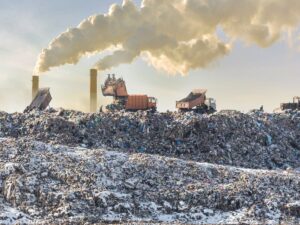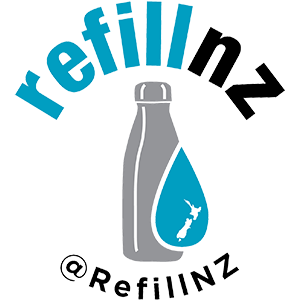Is your money fueling climate change??
If you have a Kiwi Saver account your money may be investing in fossil fuels and single use plastic, contributing to climate change. Fossil fuels are essential for the production of 98% of single use plastics and this production is predicted to contribute five to 10 per cent of the world’s greenhouse gas emissions by 2050.
July saw horrendous scenes from around the world, floods, fires, and droughts. And Aotearoa has not been spared, in fact the latest IPCC report says New Zealand will suffer rain and floods in the south and drought and fires in the north. So urgent action needs to be taken on many fronts, including single use plastic production.

Your money could be contributing to this environmental crisis
It’s not just fossil fuels fueling this production, its large investment by banks and finance organisations putting billions of $ into the companies producing this virgin plastic. Including investments by practically all Kiwi Saver funds. (see below)
In the next five years, global capacity to produce virgin polymers for single-use plastics could grow by over 30 per cent.
If this growth continues single use plastic production could account for five to 10 per cent of the world’s greenhouse gas emissions by 2050.
Kiwi saver funds - who invests in what!
If you didn’t actively choose your Kiwi saver fund it means you are in a ‘default fund’. And as of December there will now only be 6 default funds (see below) and these special Kiwi Saver Default funds must exclude fossil fuels investments in companies that get more than 15% of revenues from fossil fuels. [None of the other Kiwi saver funds need to do this.]
But they will still be able to invest in fossil fuels in any of their other Kiwisaver investment funds. And there is no requirement to not invest in the production of plastic polymers.
Institutional asset managers* and global banks** are providing billions of dollars to companies that produce virgin plastic polymers from fossil fuels – up to 100 times more than they provide to companies trying to shift to a circular economy.
So we contacted all 6 default Kiwi saver funds to find out whether they invest directly in either the companies producing single use plastic polymers OR indirectly via investments in the big international financial institutions who do in invest in plastic production the results were mixed!
Ranging from only excluding fossil fuels in their default funds to actively looking to divest in the top 20 financiers of the plastic industry, however, currently non-specifically exclude investments in direct production of plastic polymers.
(We also asked Pathfinder – winners of Mindful Money 2021- Best New Ethical Fund 2021 and Best Ethical KiwiSaver Fund Provider.)
What you can do
1. Switching where your money goes it is a very easy process. Want to check which Kiwi saver funds best match your values? Take a simple quiz.
Then visit the website of a fund that better matches your values and go from there.
2. As an investor with your Kiwi saver you have the POWER to hassle your fund to divest from fossil fuels and companies producing single use plastic polymers.
Summary of responses
| Fund | Fossil Fuels Investment (in addition to default Kiwi saver fund) | Policies to exclude investing in single-use plastic polymer producers |
| Simplicity | NO investments – in any fossil fuels- are excluded from all funds | Not as yet but will put production of plastic polymers on the list of next exclusions. |
| Westpac (BT Funds NZ) | Exclusions - Companies that derive more than 10% of their revenue from thermal coal mining, oil and gas exploration, production, or refining activities.
Or have their primary business activity in the oil & gas drilling, oil & gas equipment and services. | Actively working with their investment managers to encourage companies to adopt a Circular Economy approach to reduce waste and pollution, such as virgin plastic. But no specific exclusion of investing directly / indirectly into plastic production. |
| BNZ | New policy that all Kiwi saver funds will exclude oil and gas investments that generate more than 10% of their revenue from projects within the Arctic or Antarctic or from tar sands oil extraction.
Thermal coal that generates more than 10% of their revenue from the extraction or burning of thermal coal. | Large oil and gas companies (all of whom generate more than 10% of profits from fossil fuels) who are in the ‘Top 100 Polymer Producers’ list are excluded from BNZ’s portfolios under their new Responsible Investing Policy.
But no specific exclusion of investing directly / indirectly into plastic production. |
| Booster | Only excluded from specific SRI Kiwi saver funds | No plans to exclude investments associated with manufacture of plastic polymers. Say they take into account issues such as waste. |
| Kiwi Wealth (Kiwi Bank) | As yet don’t exclude fossil fuels from any Kiwi saver funds, other than the new default funds.
| Possible that their new default fund may invest in companies producing plastic polymers for single use plastics. Plastics is not currently an area that Kiwi Wealth has on their exclusions list.
Kiwi Wealth is planning on running a responsible engagement programme later this year. To understand what changes customers would like with responsible investments. |
| Superlife (NZX's Smartshares)
| Smart shares are passive funds that track third-party indexes. They do not apply any ESG screens other than those included in the construction of the Index.
They have available ethical funds - SuperLife Ethica fund (that are not investing in fossil fuels) However, other funds do.
| Smartshares invests in line with their Responsible Investment (RI) Policy. They strive to keep policy in line with the Environmental, Social and Governance topics that the investors are most interested in. |
| Pathfinder | No fossil fuel investments - plastics industry is fully entwined with the fossil fuel industry which they have not invested in for several years | They don't have any specific plastics manufacturing companies in their portfolios.
They do not invest in the 4 largest financiers of fossil fuels (JP Morgan Chase, Bank of America, Wells Fargo, Citibank). They are gradually working through the top 20 financiers and will ultimately divest from them all. They expect to have found alternative investments by the end of 2021. |
Other Kiwi Saver providers
The following companies haven’t been appointed as default funds and so don’t have fossil fuel investment requirements:
● Fisher Funds – exclude Oil, gas, coal
● AMP – no exclusions for fossil fuels
● ANZ – limited exclusion of coal and some fossil fuels
● ASB - no fossil fuel exclusions
Has an option
● Mercer- excludes companies involved in the manufacture and/or production of tobacco and controversial weapons across all of Mercer’s funds. No mention of fossil fuels.
So if you’re in one of these old default funds, they’ll probably aim to convince you to stay with them before the big switch happens, in one of their other funds.
That’s your opportunity to ditch them if you feel strongly about fossil fuel investment.
If you don’t make a choice on which fund to be in – on 1 December you will automatically be switched to one of the 6 default providers.

